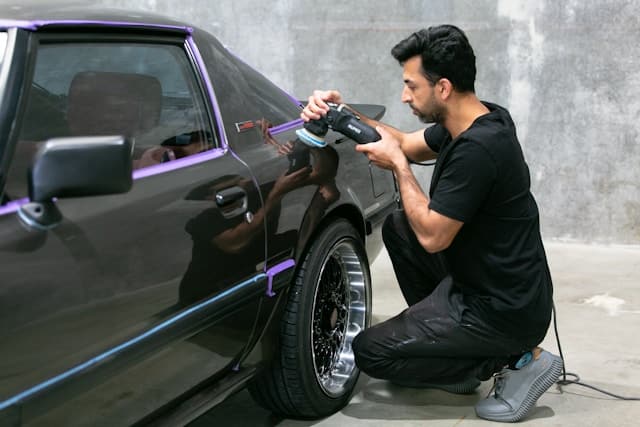The Risks of Using Non-Professional Collision Repair Services
 Getting back on the road quickly and affordably after an accident tempts many vehicle owners to consider non-professional or DIY collision repair options.
Getting back on the road quickly and affordably after an accident tempts many vehicle owners to consider non-professional or DIY collision repair options.
While the idea of saving money may be appealing, entrusting your vehicle’s safety and value to anyone but certified experts is a risk that can lead to hidden costs, safety hazards, and lingering regret. At Chaney’s Collision Centers, we strongly advocate for professional repairs — and here’s why.
The Hidden Dangers of Amateur Repairs
Non-professional repairs often overlook critical steps in the collision repair process. Proper assessment, preparation, and execution are essential for restoring vehicles to their original safety specifications. Skipping vital tasks such as checking for structural damage, correctly mixing and applying paint, or properly replacing components can result in repairs that are visually imperfect and structurally compromised. This lack of thoroughness can hide underlying frame damage or fail to restore crash-absorbing features, creating significant risks in any subsequent accidents.
Warranty and Insurance Pitfalls
One of the most serious consequences of trusting a non-certified technician or tackling repairs yourself is the risk of voiding your vehicle’s warranty. Most manufacturers and insurance providers insist on certified repairs, using OEM parts and approved techniques, to maintain coverage. Repairs performed with inferior methods or mismatched parts can lead to denied claims, leaving vehicle owners responsible for subsequent repair costs. According to recent studies, nearly a quarter of vehicle owners lost warranty protection after using uncertified repair shops.
Risk to Personal Health and Safety
Automotive repair often involves exposure to hazardous chemicals, paint fumes, and dust particles, especially without proper ventilation or safety gear. Inadequate handling of these substances in amateur settings can cause respiratory problems, dizziness, and long-term health complications. Beyond that, untrained use of heavy machinery, power tools, and welding equipment can result in serious physical injury. Certified body shops are required to follow rigorous safety protocols to protect their technicians and the environment, which DIY setups and non-professionals typically lack.
Poor Aesthetics and Future Damage
Non-professional repairs frequently suffer from completed jobs that are visually disappointing. Uneven paint, mismatched color, surface imperfections, and misaligned panels are common indicators of inadequate workmanship.
Not only do these flaws negatively impact resale value, but they can also accelerate future deterioration, such as paint peeling or rust formation, leading to more costly repairs down the line. Prospective buyers are wary of vehicles with a history of amateur work, lowering your car’s worth and marketability.
Why Professional Certification Matters
Professional collision centers like Chaney’s invest in continuous training, state-of-the-art tools, and manufacturer-recognized certification programs. These shops employ technicians who are experts in modern vehicle systems, understand the intricacies of new materials, and adhere strictly to OEM repair standards.
Using a certified shop guarantees work that is reliable, covered by warranty, and recognized by insurance companies. Most importantly, it restores your vehicle to its pre-accident condition, preserving safety, durability, and appearance.

